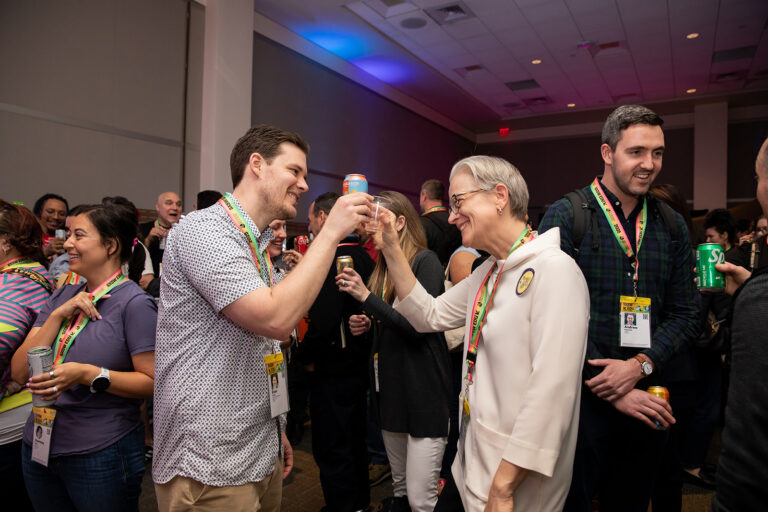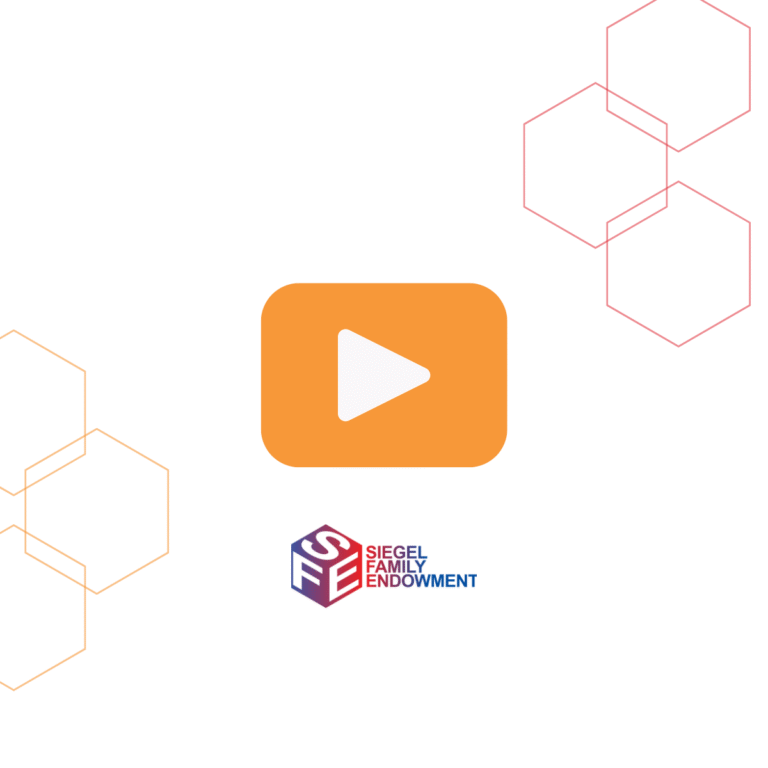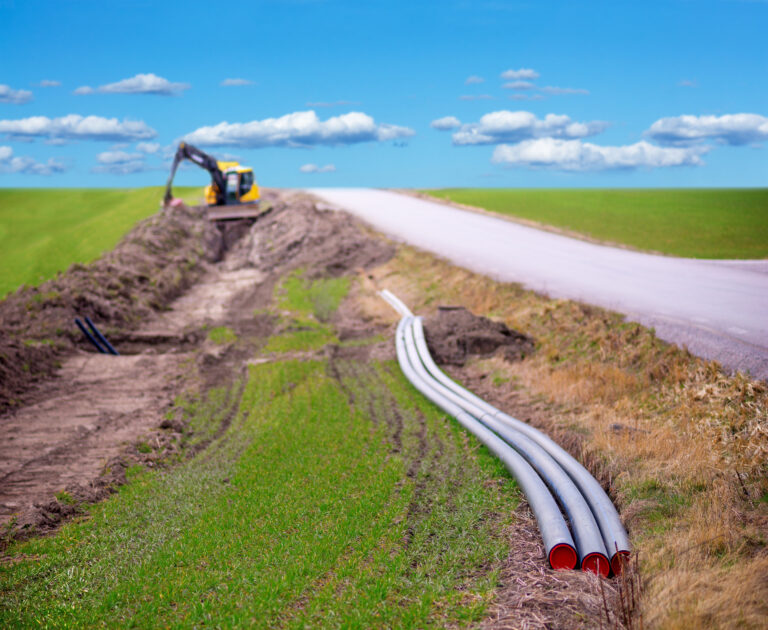What happens when students are more than subjects of the conversation? The Bell’s reporters flipped the script in Austin.
Young people are uniquely equipped to synthesize what’s really happening in classrooms and communities. Their insights are both grounded and visionary. And yet, it’s often difficult to make space for their meaningful participation at education conferences: funding travel, navigating time out of school, and creating the infrastructure to involve them in substantive ways all require intention and coordination.
Bernie Carmona, Marcellino Melika, and Salma Baksh are student reporters for The Bell, a nonprofit organization that trains and amplifies the next generation of storytellers and works to expand equitable access to youth journalism opportunities in NYC and beyond — and a Siegel grantee. This year, Siegel supported their journey to SXSW EDU to help elevate student voice and representation at a conference focused on the future of education.
Over three action-packed days, Bernie, Marcellino, and Salma recorded an episode of The Bell and Chalkbeat NY’s P.S. Weekly podcast for a live audience, co-led a podcasting workshop with the team behind the NPR Student Podcast Challenge and PBS News Student Reporting Labs, and moderated Siegel’s panel about the future of public interest technology with youth leaders from Roadtrip Nation. They also enjoyed spending time at The Public House, our annual activation with the Stanford d.school.
Follow the experience of Salma, Bernie, and Marcellino through the multimedia blog below, which features videos, photos, and written reflections captured by the students themselves.
How did the conference compare to your expectations?
Bernie: I just initially thought [the conference] was going to be people wearing business attire, suits and ties, all of that stuff. I was scared of my outfit because I thought it was too urban or something like that. Like, I was wearing sneakers. But, you know, my thoughts were the complete opposite of what it actually was. People were actually freely expressing themselves. Not just suits and ties.
When I walked into the conference, I was like, wow, people are approachable. People are here to talk, and people want to speak with me. It was really easy to connect with people in that space because we all had that shared idea that we were at that space to specifically talk about education.
Salma: The convention center was much bigger than I would have thought. It was very techy, which I didn’t expect. I found it difficult at times too, because one of our goals was to get people to come to [our P.S. Weekly panel] and all the other things we were doing. I know everyone there was invested in education, but it felt hard to just go up to them and be like, “Hey, what are you doing tomorrow at 2:30?”
Me, Marcellino, and Bernie made a little plan and joined together because we knew that we had to talk to people and, you know, started approaching people and popping up to them if they were sitting down in random places. And that worked. But that was a new, different experience.
You were challenged to network with people a few times throughout the conference. How was networking for you?
Marcellino: I was kind of surprised by having conversations with [conference attendees]. Because before, I sort of thought, like, what are these people going to tell me that I would actually care about? It would just be like, “Oh can I have your LinkedIn?” and that’s it, right?
In the Siegel lounge, right before we left on Wednesday, some of the people there were taking notes based on what we were saying, which was kind of crazy. In my mind [the conference] seemed like it would be more of a social event, not something you can learn from and grow from…It was interesting to see how willing people were to talk like that, share, and educate.
Can you recall anyone you talked to or any interesting insights you gained at the press happy hour?
Salma: It was very overwhelming at first. Like, if you’re not talking to someone, then you’re just very aware of how loud it is in the room and how much conversation is going on between people, and that people already know each other. But I recall that again, we made a plan and we were like, we’re going to talk to people, just go up to them.
I believe we talked to the vice president of SXSW EDU. And also talked to someone on the communications team. One of the conversations I had was about how I was hoping to find more spaces that were more ed-policy centered, and trying to plug in and pitch the idea of a youth panel on education or an incubator of some sort at SXSW EDU to invite more young people. Because I believe one question we opened with for the VP guy was, “Where are all the young people?” And then that continued for me into a separate conversation about getting more young people involved in ed-policy.
I would love to get involved in the process of organizing [the conference] and seeing other young people and youth organizers at this conference because, I mean, it’s great that we’re having all these conversations, but I would like to see more young people. And they were excited to see young people too. Like, our seats [at our panel] were kind of full. People were there because they wanted to hear from us.
Bernie: I was really scared at first. There were only adults in there and everything. But, [all it took was] approaching a random person. Like, I remember approaching this random lady. It all just took going up to her and asking, “What organization are you part of? What’s interesting about that? What do you like about that? What would you suggest for me?”
Salma: That conversation with Whiteboard Advisors opened me to education consulting and now I’m really looking into it and thinking about it, that this might be an area that intersects with a lot of skills and interests that I have.
Did you have a favorite moment or memory from SXSW EDU?
Bernie: It would probably be meeting other teenagers. That was really important to me, over the course of the trip. Talking to other people my age, people that were there that had the same leadership and intentions to lead change. As I was talking to them at the breakfast and at the NPR student panel, hearing others’ situations – others live in Georgia, or L.A.. Some of them came from rural places. Someone came from New Jersey and someone else came from Houston, and they were like, “Wow, we’re so surprised by your high school experience. Like, that’s so different. I never had to go through that.” And they asked more questions about it. So it’s just like that meaningful exchange with other people.
Marcellino: There was one cool guy I met in the Siegel lounge from the Stanford d.school. I think his name was Shawn Smith. He went back to school to get his Master’s of Design from Stanford. I thought his whole journey and education and the work he does was really cool as well. It informed me that even though I plan to study this certain major, I could still go into so many paths off of that.
Salma: It would have been a much different experience if that panel was just in New York, but we travelled across the country and really met new people in new places. I don’t know if Bernie and I spoke about it explicitly, but I remember a conversation about the importance of being in new places and meeting new people and experiencing different things.
For the actual conference, I have been recalling, I don’t remember his name, but I know Sabrina and I also had a conversation with one of the guys who was in the Siegel lounge. Bernie was also there. We spoke about burnout, and I have been thinking about that conversation. I’ve also been thinking about Laura from Siegel and the support I felt from every conversation that I had with her. She was always willing to point me to the right people and, like, continues to offer to connect me on email with different people. So I’m grateful to her.
What is something you learned at the SXSW EDU?
Salma: I would say it’s all about the people. When I reflect, one thing I wish I had done is be more strategic about the rooms that I put myself in and the people that I spoke to. But when I think forward as to how maybe I could go back one day in the future and what [would] be the outcome of the conference, I land on the people that I interacted with and how I can build on their passion and connect.
Bernie: As long as I have my community with me, which I have had over the past couple of years, I truly think that I don’t have to like affirm by a specific field or a specific topic, like in college or in the future. If I want to get a Ph.D, I just have to know that that might change and that might take a different trajectory. With the things that I’m learning along the way, in journalism and at SXSW, I learned that it’s not worth the burnout. It’s not worth burning yourself when you’re trying to get to your goal of making change. All of that takes time.
Marcellino: I learned that there’s a lot of “important” people that actually care about stuff happening in education. At times it could feel like nobody cares about what’s happening, especially in certain bubbles. So going to an event like that really showed the stakeholders and the people that actually have a say and are trying to change things across the field.





